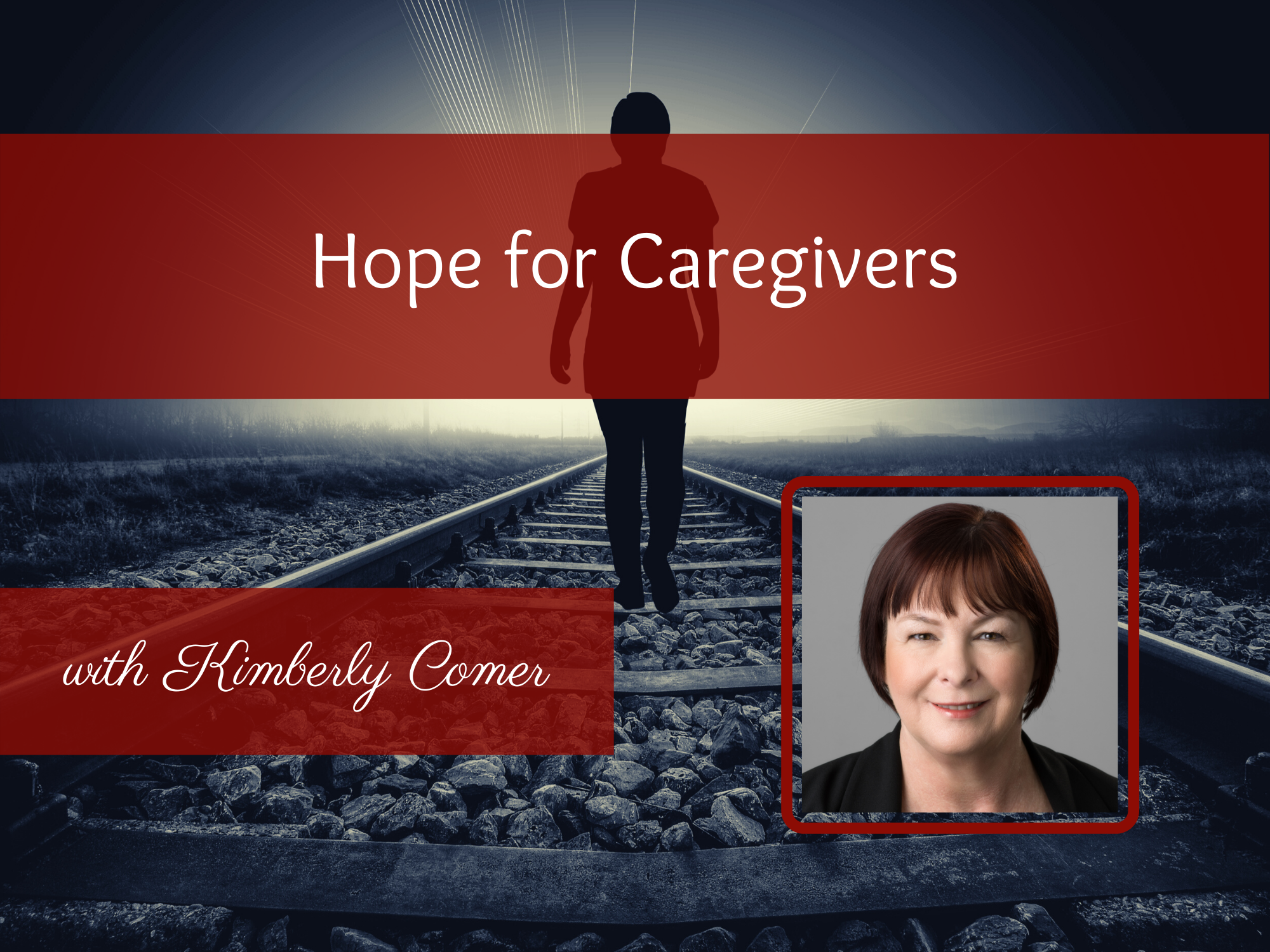In 2012, at the age of 48, Kimberly Comer was once again in the hospital facing the worst psychotic break with the worst symptoms she’d ever experienced. The night before she was discharged, she saw a presentation that changed her life forever. There were two speakers, one who had a behavioral health diagnosis and one who was a caregiver. For the first time since being diagnosed, Kimberly realized she wasn’t the only one being impacted by her mental illness.
The young lady who shared her story that night had a diagnosis similar to Kimberly’s and she was able to share hope, recovery, and a success story of living the life other people do. It was the first time Kimberly realized there were educational opportunities that would allow her to learn the skills and tools she needed to manage her chronic health issues.
When the caregiver spoke, Kimberly’s heart broke because the medical model used throughout her treatment was always so focused on her, the person with the diagnosis, but had never encompassed her family. She recognizes this moment as the one that changed her will to live. The speaker gave Kimberly her card, and when she was released, Kimberly made the call. Her wellness journey began.
Today, Kimberly is a National Certified Peer Specialist and volunteers with the National Alliance on Mental Illness (NAMI). She works with individuals with a behavioral health diagnosis, as well as families and caregivers, on developing the skills and tools to manage long-term diagnoses. We talked to Kimberly about the challenges caregivers face, the needs they have, and what support services she offers.
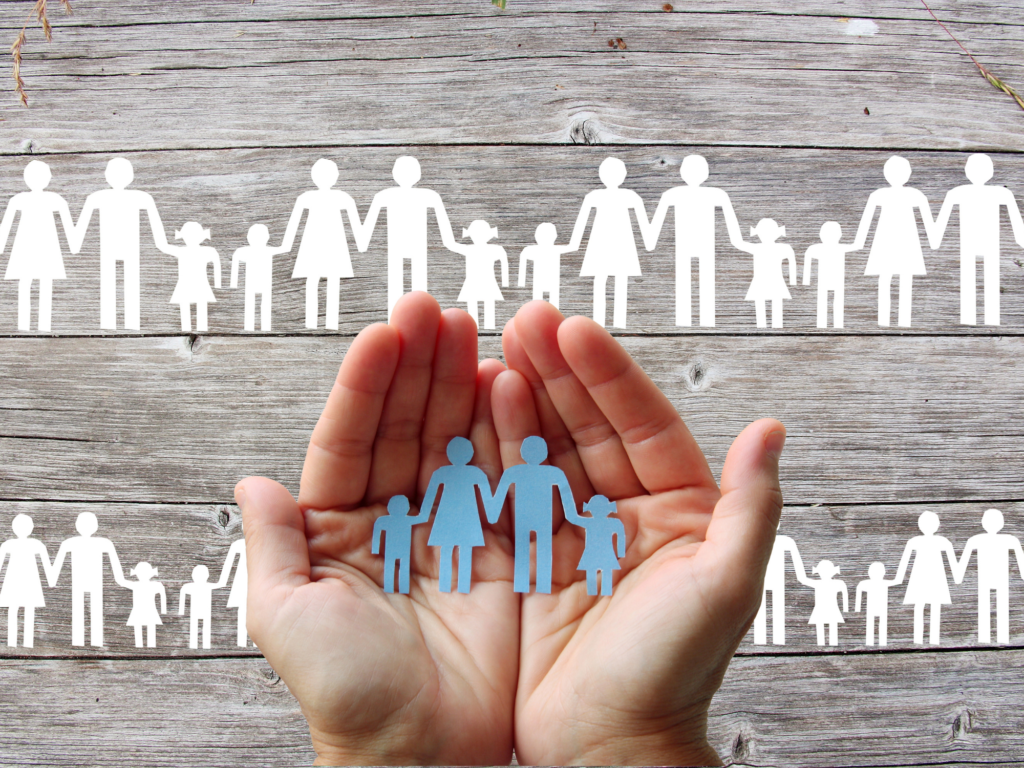
What Challenges Do Caregivers Face?
Receiving a behavioral health diagnosis is life-changing, and caring for someone with a diagnosis has a unique set of challenges.
As Kimberly points out, “It’s exhausting” for the caregivers who want to get treatment for a loved one but they refuse. While she has been in recovery since 2012, she had to be the one to make the decision for herself, even when her family wanted to act on her behalf.
A common challenge is that families and caregivers want to “fix” the diagnosis. Kimberly notes, “They figure if they fix that one person, everything will be okay.” This ignores other factors, though. As Kimberly says, “There’s transgenerational trauma, there’s dysfunction, there’s learned behavior patterns.” A behavioral health diagnosis isn’t just about the individual, but the whole family unit.
Many caregivers feel powerless to stop the chaos in their life. Part of the problem is waiting until behavior gets to a crisis point before seeking help, which means they have to reach out to law enforcement.
When caregivers do get help either from the law or from medical providers, there are the “frustrations of caregivers not being listened to when they try to share information with providers.” Caregivers, especially for adults with diagnoses, are often excluded from critical conversations due to privacy protection, even when they could provide insight on the individual’s behavior.
Kimberly has experienced this herself: “I was the one with the diagnosis and nowhere in the process of those years of my treatment did anyone include my family. Didn’t happen.”
It’s not just the relationships that are challenged with a diagnosis either. Kimberly explains, “Symptoms from a physical health issue can either exacerbate or mimic behavioral health symptoms,” which makes it hard for caregivers to determine the type of support their loved one needs.
When the caregivers are trying their best to help the individual with the diagnosis, this can often lead to negative feelings in the individual. “A lot of family members don’t realize what they’re doing, but they’re making individuals feel like they can’t do anything,” notes Kimberly.
Out of all the challenges caregivers face, stress is the biggest: “The reason a chronic health issue is so challenging is because it keeps your stress level at a raised rate for an unknown period of time.” There’s no way to tell when symptoms will appear, how long they will stay, or how the individual will react when they are symptomatic, which causes very high stress levels.
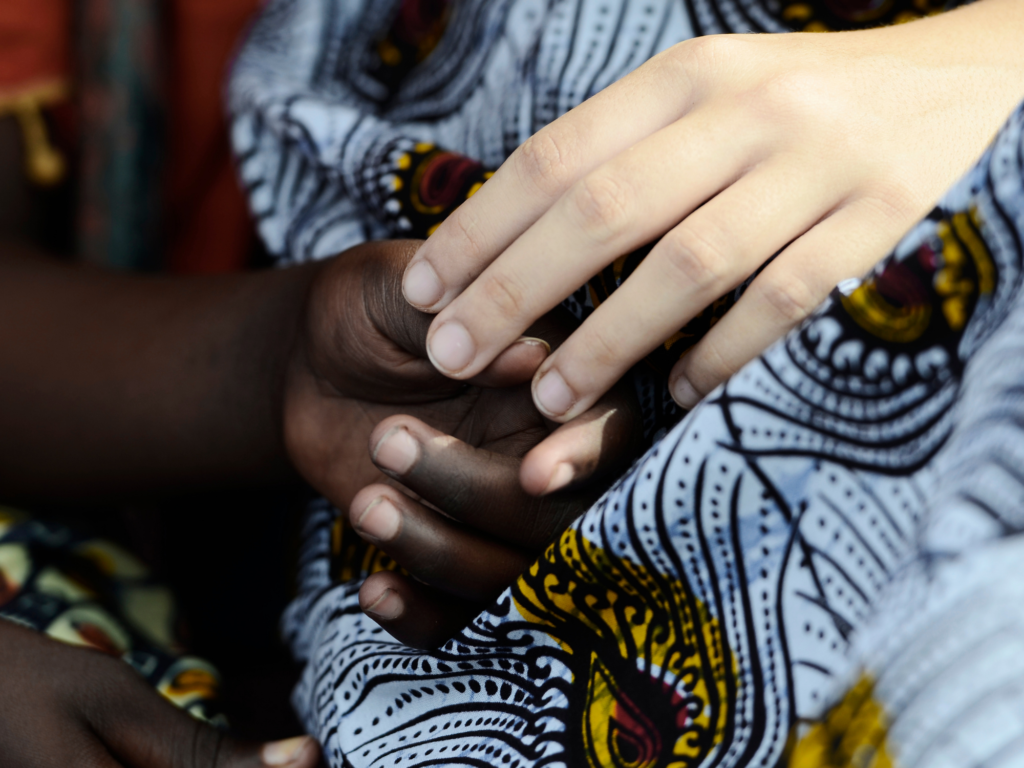
How are Caregiver Needs Unique?
We know that caring for someone with a diagnosis is challenging, and that caregivers often need a unique kind of support for their own wellbeing.
According to Kimberly’s experience, caregivers need to be able to, “identify the chaos without getting enthralled in the chaos.” In other words, they need to have the skill of “being able to separate oneself from that individual [with the diagnosis].” Caregivers tend to see symptoms as personal when they’re not.
Kimberly notices another, more difficult, need: “Sometimes it’s watching it and knowing there is nothing you can do to change it, but helping the individual identify what choices they are making.”
It doesn’t help that people don’t like feelings in general. Kimberly emphasizes the importance of being able to be uncomfortable and feel the feelings, “Feelings really do come and go and if I react to my feelings, I’m much more apt to make unhealthy choices than if I feel my feelings.” Caregivers have the unique need to be able to feel their feelings, but also separate themselves from the often emotional symptoms of their loved one.
Burnout is a huge obstacle for caregivers whether they’re caring for someone with a traumatic brain injury or a behavioral health diagnosis. “The primary difference is that people just don’t talk about the caregiver burnout for someone who is supporting an individual with a diagnosis. And then people don’t know there are resources for support out there,” says Kimberly. The lack of open discussion, and lack of knowledge, is a major problem.
Stress is, again, a key issue for caregivers. Kimberly highlights this point with an example: “If you get an elderly parent who has started the onset of dementia or Alzheimer’s and you’re the primary caregiver for them, you just do what you need to do but you don’t necessarily appreciate the stress level that brings on.” The stress is there, but is rarely addressed until a larger issue appears.
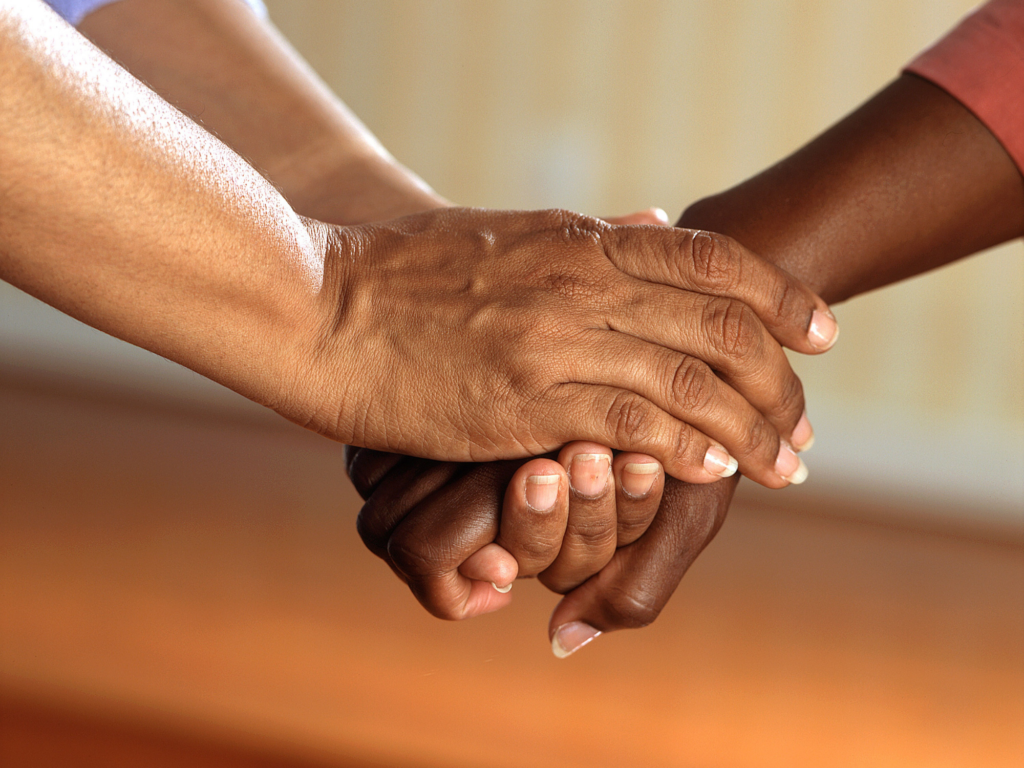
What do Caregivers Need?
One of the most important things that caregivers need is support. Kimberly notes a great type of support is “from other family members who are going through similar experiences. So they know they’re not alone.” There are support groups that offer this type of support.
Caregivers also need to know that “there’s a different way to communicate with someone when their brain isn’t functioning and hearing things correctly,” explains Kimberly. When the individual with the diagnosis is symptomatic, they aren’t thinking the way they normally would, so caregivers need to be able to identify the symptoms and change how they speak to the individual during that time. Kimberly emphasizes, “It’s really about becoming a team member with them, not fixing them.”
A key question Kimberly says caregivers should consider is: “How do we empower the individual who is living with that diagnosis to manage that diagnosis and build the future that they want to have?” One of the ways to empower is to act in supportive ways rather than more physical caregiver ways. “If you look at it with the same approach that you do with physical health issues, then the individual is going to continue to feel worthless and hopeless and decompensate,” explains Kimberly.
Above all, caregivers need to know that “This is a long-term situation. Developing those skills to manage the stress long-term is vital.”
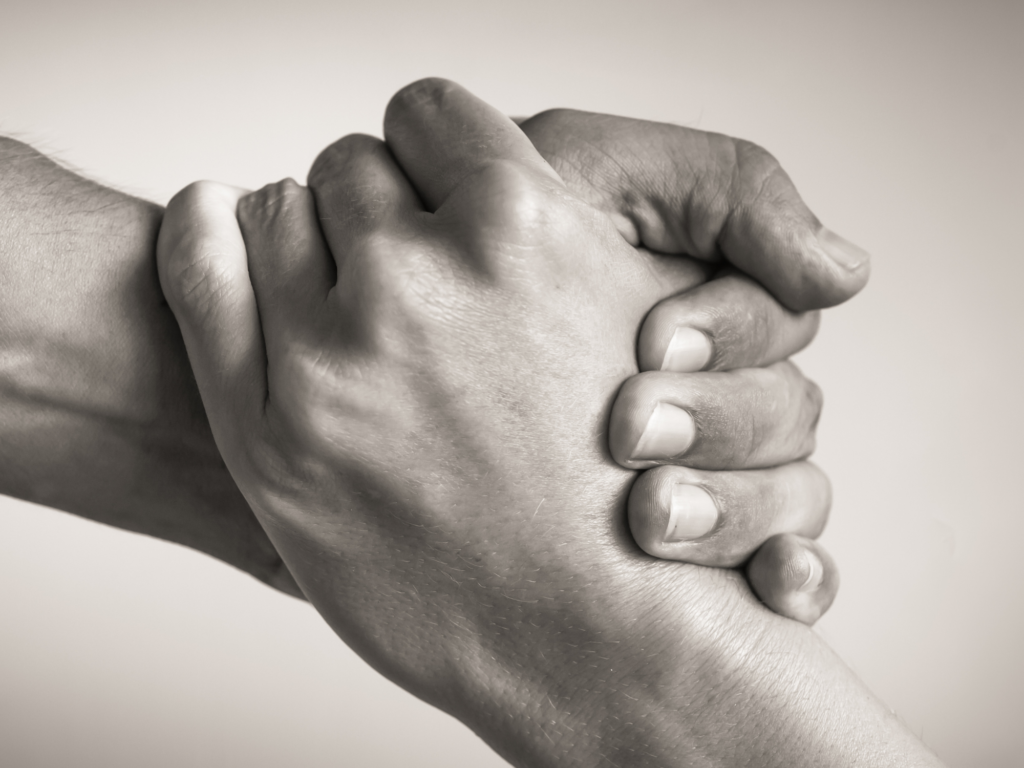
What Support/Services Are Available for Caregivers?
As a National Certified Peer Specialist, Kimberly works with individuals and families in multiple ways. For her own practices she says, “I don’t chase people down. I don’t do the medical model. What I do is allow them to come to me and empower them to begin to decide what it is they need for their wellness journey to start.”
In her journey, getting well began with her making the decision for herself. The support process is unique for Kimberly because she can share her experiences. “What makes me different from a clinician is that I get to share my lived experience. Unlike a clinician who is ethically not supposed to share, my ethics are that I share and utilize my lived experiences to provide hope while ensuring I do not share in a way that would traumatize someone or would hurt them, but yet provide those incremental pieces of my story that will allow them to know that it’s not always going to be like this if we get out of our comfort zone and start making changes,” she explains.
By sharing her experiences, she hopes to provide hope to those family members who have been “involved in the chaos for so long.” She also works to give caregivers a voice to help their loved ones: “Being able to give them that voice that’s going to be able to educate the provider in a healthy way” is very important to Kimberly’s process with caregiver support services.
She also connects families to other resources that could help them: “I try to connect them to our family support groups, our education classes that are evidence-based, peer-led by trained individuals. It’s a way for them to develop their support networks instead of focusing all their efforts on fixing somebody else.”
Kimberly spent 23 years of her life getting treatment that ultimately created more trauma that she had to learn how to manage. She spent most of her time listening to what others said she needed, but during the NAMI presentation in 2012, she felt a little spark of hope. As someone in long term recovery with a diagnosis of Rapid-Cycling Bipolar with Psychotic Features, Kimberly says, “I literally live a life each day now that far exceeds any delusion I ever had. So you never know when someone is going to get that flicker.”
For caregivers, the task of supporting a loved one is exhausting. It presents unique challenges and necessitates a different kind of support than those with a diagnosis. But, there’s hope. There are resources available.
We’ve collected a few below to get you started, but, if you are a caregiver, know that you’re not alone. We’re here to help.

